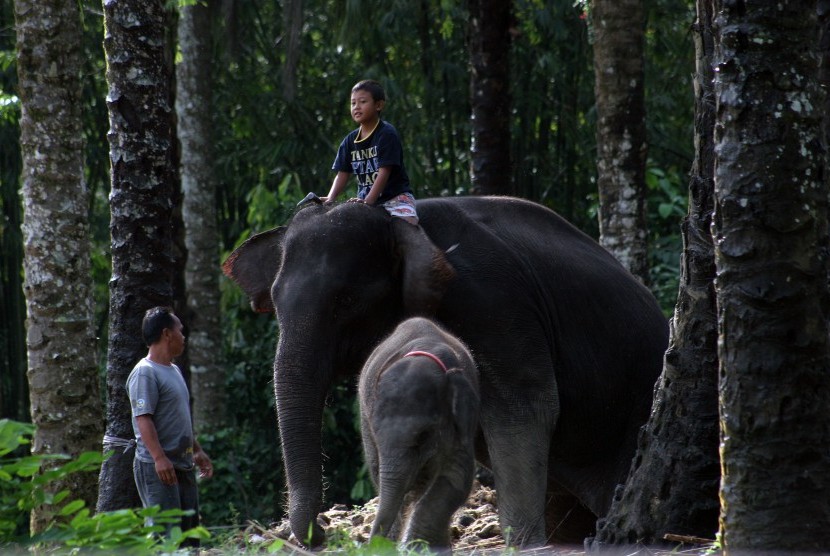REPUBLIKA.CO.ID, DENPASAR -- Two Sumatran elephants were part of a beach clean-up drive at Mertasari Beach in Sanur, Bali, during the commemoration of National Waste Awareness Day on Tuesday.
Two adult female elephants named Teresa and Murni were transported from the Bali Marine and Safari Park to Mertasari Beach using two trucks.
"We are supporting the initiative with the BKSDA (Nature Resource Conservation Agency) to participate in National Waste Awareness Day," General Manager of the Bali Marine and Safari Park William Santoso stated here on Tuesday.
The two elephants used their trunks to pick up the plastic waste strewn along the white sand beach after which the trash was handed over to their tamers to be placed in garbage bags.
The elephants had not undergone any special exercise to detect garbage, Santoso revealed.
"They can work along with humans, especially their tamers," he affirmed.
The elephants had been involved in a similar activity held on Masceti Beach in Gianyar sometime ago.
Director of Biodiversity Conservation Bambang Dahono Adji lauded the initiative taken to keep the natural environment clean.
He hoped that the beach clean-up activity would raise public awareness, including among foreign tourists, to preserve the natural environment of Bali Island.
The public is commemorating National Waste Awareness Day on February 21.
Moreover, the government has issued a regulation that came into effect since Sunday, according to which modern retailers must not hand out plastic bags to customers for free.
The policy is aimed at reducing the use of plastic bags, so that Indonesia will no longer be the second-largest producer of plastic garbage, second only to China.
A study conducted by a research team, led by Jenna Jambeck from the University of Georgia, revealed that more than half of the plastic waste that flows into the oceans originated from five countries: China, Indonesia, the Philippines, Vietnam, and Sri Lanka.
China was said to become the major contributor of the world's plastic waste, with 8.82 tons per year of mismanaged plastic waste, while Indonesia came second, with 3.32 tons per year.


